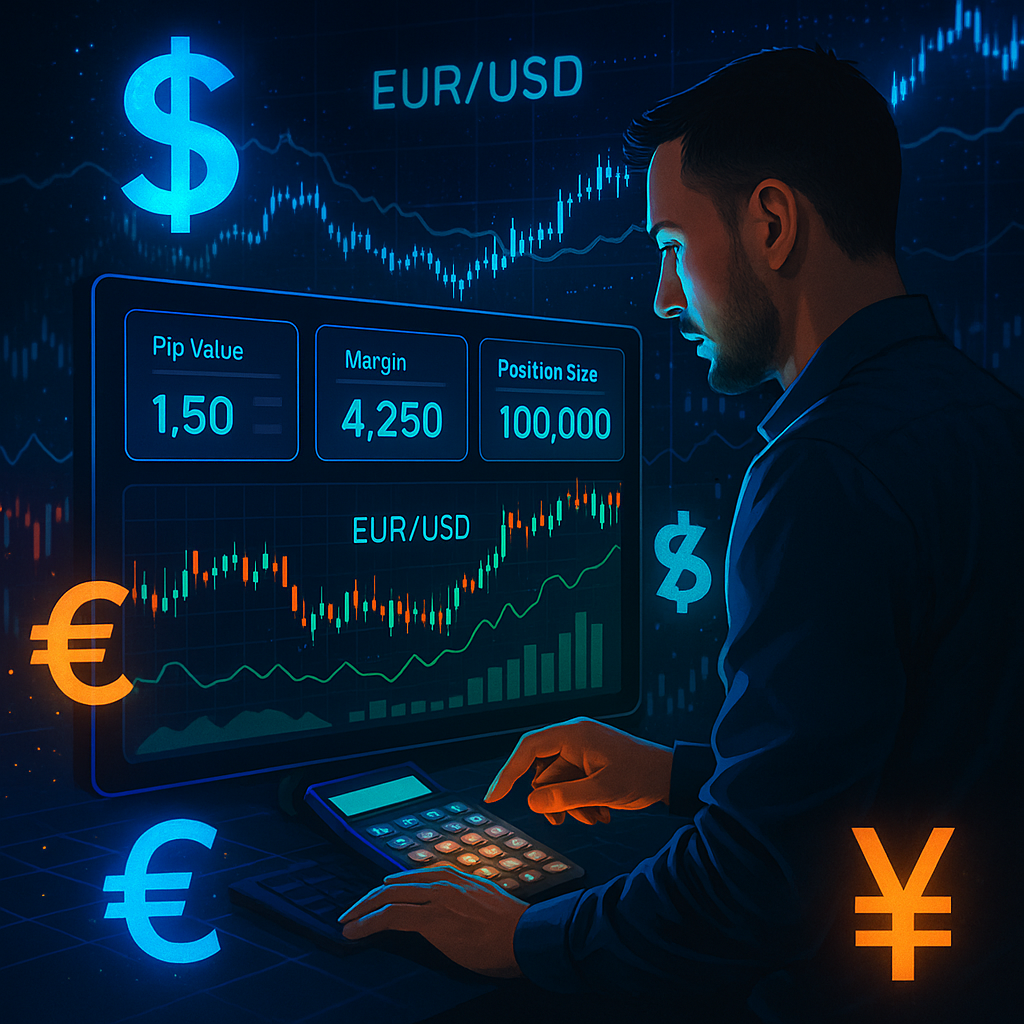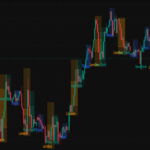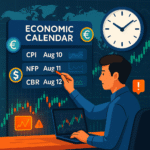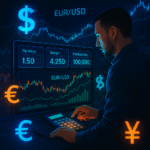Success in forex trading isn’t just about market intuition — it’s about precision. And no tool brings precision into the picture like a forex calculator. Whether it’s determining risk before a trade or calculating pip value in a volatile pair, these calculators are indispensable for every serious trader.
This post explores why forex calculators matter, the types you should be using, and how they support smarter trading decisions in today’s fast-moving markets.
Why Forex Calculators Matter
Trading involves numbers — lots of them. From position size to leverage to potential profit or loss, making these calculations manually isn’t just time-consuming; it’s risky. Forex calculators automate this process, helping traders:
- Avoid costly mistakes
- Prepare trades more confidently
- Compare scenarios before executing
Beginners often overlook calculators, but experienced traders use them as part of their daily routine. The more you use them, the more calculated your risk — and the more consistent your results.
Types of Forex Calculators Every Trader Should Know
1. Position Size Calculator
This helps you calculate how much currency to buy or sell based on account size and risk level. It keeps trades aligned with risk management rules.
2. Pip Value Calculator
Pip value varies between currency pairs, and this tool lets you know how much each pip movement means for your position.
3. Profit Calculator
Estimate your potential gain or loss based on entry and exit prices, lot size, and direction (buy/sell).
4. Margin Calculator
Ensures you understand how much margin is required based on leverage and trade size — helping prevent margin calls.
5. Currency Converter
Crucial for international traders, this tool converts account balances and trade values across currencies using real-time exchange rates.
How They Support Better Decisions
Imagine this: a trader sees a promising breakout in EUR/JPY. Without checking pip value or position size, they enter the trade. The market swings against them — and because they over-leveraged, they lose more than expected.
Now picture a different scenario. A trader uses a position size calculator before entering, checks margin requirements, and plans the stop-loss using pip value. When volatility hits, they stay within their risk parameters — no panic, no surprises.
That’s the difference calculators make.
Real-Life Use Cases
- Scalpers use pip calculators to gauge tiny profit windows.
- Swing traders rely on profit calculators to visualize potential returns.
- Funded traders follow strict position sizing rules — calculator use is mandatory.
- Beginners use margin calculators to learn how leverage impacts trade size and account balance.
Whatever your style, these tools scale with your strategy.
Best Practices for Using Forex Calculators
- Don’t Overestimate Risk: Use calculators to define acceptable risk — not to justify oversized trades.
- Use Live Exchange Rates: Ensure converters are updated in real time.
- Double-Check Before You Execute: Always verify inputs before placing a trade.
- Include Calculators in Your Trade Journal: Save screenshots or notes showing how each trade was calculated. It helps improve decision-making over time.
Trusted Forex Calculator Tools
Here are a few platforms offering reliable calculators:
- Myfxbook – Offers all types in one dashboard
- Babypips.com – Beginner-friendly tools and education
- TradingView Add-ons – Some scripts integrate pip and position calculators into charting
- MetaTrader Plugins – Available through broker plugins or third-party providers
These tools are mostly free and accessible on both desktop and mobile platforms.
A Smarter Trading Future
With tighter spreads and faster execution becoming the norm, traders need to make decisions swiftly — but also wisely. Forex calculators add structure, discipline, and clarity to each step of the trade. For newer traders, they build confidence. For seasoned traders, they maintain consistency.
And in a world where milliseconds and margin matter, skipping these tools means playing without a net.
Start using forex calculators not just occasionally — but as part of your core routine. Precision pays off.




